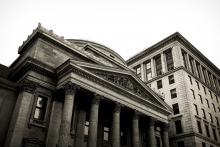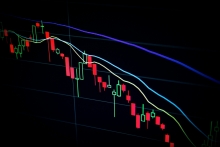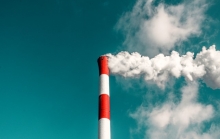
War: The enemy of air, land, and sea | The McGill Tribune
April 5, 2022 | In this McGill Tribune article, Max Bell School director Chris Ragan comments on the relationship between war and climate change and expresses his belief that Putin's incursion into Ukraine will cause the West to seriously rethink its reliance on Russian oil and gas.

Why the no-fly zone won’t fly | The Hill Times
March 1, 2022 | For The Hill Times' Politics This Morning daily summary, director Chris Ragan explains the nuances of Canada and other G7 countries' plan on imports and barring foreign currency exchanges with Russia's central bank.

Chris Ragan on Canadian Inflation, Supply Chains, Pent-up Demand, and Hot Real Estate | Culture at a Crossroads
February 11, 2022 | The COVID-19 pandemic has thrust Canada's economy into an extraordinarily unusual state. To break down the issues, Max Bell School director Chris Ragan spoke to David Mann for an episode of the At a Crossroads podcast. Hear Ragan's perspective on inflation, pent-up demand, supply chain disruptions, the housing market, and more.

Ottawa deserves better | Politico
February 17, 2022 | In this edition of Politico's Ottawa Playbook, Max Bell School director Chris Ragan comments on Canada's recent history of low levels of inflation.
Read the article.

Economist Chris Ragan on the problems with Modern Monetary Theory | The Hub
January 20, 2022 | Economist and Director Chris Ragan joins this episode of Hub Dialogues to discuss the proper role of central banks, the problems with Modern Monetary Theory, and the need to rethink fiscal priorities in recovering from the devastation of the pandemic.

Canada's cost of living increased 4.8% in December, the fastest rate since 1991 | CBC News
January 19, 2022 | Director Chris Ragan discusses supply chain disruptions and Canada's inflation rate rising to a 30-year high on CBC News. "There's a lot of pent-up demand," Chris notes, referring to businesses and restaurants being closed over the pandemic, and many consumers not having any place to spend their income.

23 charts to watch on inflation and the economy in 2022 | Maclean's
December 21, 2021 | In Maclean's "Chart Week 2022" predictions roundup, Chris Ragan answers the question: "When will Canadian inflation return to target?"
Read the article.

Burning Questions: Is Ottawa finally about to get serious about housing bubbles? | Regina Leader-Post
December 24, 2021 | After Director Christopher Ragan

Inflation 101, with Christopher Ragan | The Hill Times
December 15, 2021 | Director Christopher Ragan joins The Hill Times' The Hot Room podcast to explain how inflation works, whether the Trudeau government is to blame for rising prices, and the Bank of Canada's new-look plan to manage it.
Listen to the episode.

‘Leave it alone’: Chris Ragan comments on the Bank of Canada mandate debate | The Hub
November 12, 2021 | Following a dialogue between The Hub and Max Bell School Director Chris Ragan, this article outlines the history of the Bank of Canada's agreement with the federal government leading up to the mandate's expiration in January 2022.
Read the article.

Do Deficits Matter Anymore? | The Agenda
November 4, 2021 | Governments worldwide have run huge deficits to deal with COVID-19. Should we be about this ballooning debt, or do deficits not matter anymore? Max Bell School director Chris Ragan weighs in.
Watch the panel.

A low-carbon world is coming Alberta | Maclean's
October 21, 2021 | In this op-ed for Maclean's Max Bell School director Chris Ragan, Dale Beugin and Gord Lambert explain why ahead of COP26, Alberta needs to prepare for the inevitability of a low-carbon world.
Read the article.

Federal government pressed to extend COVID-19 benefits for small businesses |
October 5, 2021 | With vaccination rates relatively high across the country, Canada has moved past the worst stages of the COVID-19 pandemic. That said, the crisis is by no means over, and many businesses haven't fully recovered. What, then, should the federal government do about the small business support programs it launched at the onset of the pandemic? Max Bell School director Chris Ragan recently shared his perspective.

Battling climate change in Canada: Experts examine the major parties' climate plans | The Current
August 23, 2021 | When voters went to the polls in the recent federal election, climate change was front of mind for many. For the first time, all major parties had credible plans to reduce greenhouse gas emissions. But how did the plans stack up to each other? Max Bell School director Chris Ragan weighs in on this episode of The Current.

Climate change and the election: Compare party platforms | CBC News
September 12, 2021 | The 44th federal election campaign is over, and the Liberals have clung to their plurality of seats in the House of Commons, setting them up to form another minority government. Read about what they have promised to do to fight climate change during their new mandate.
Read the article.


